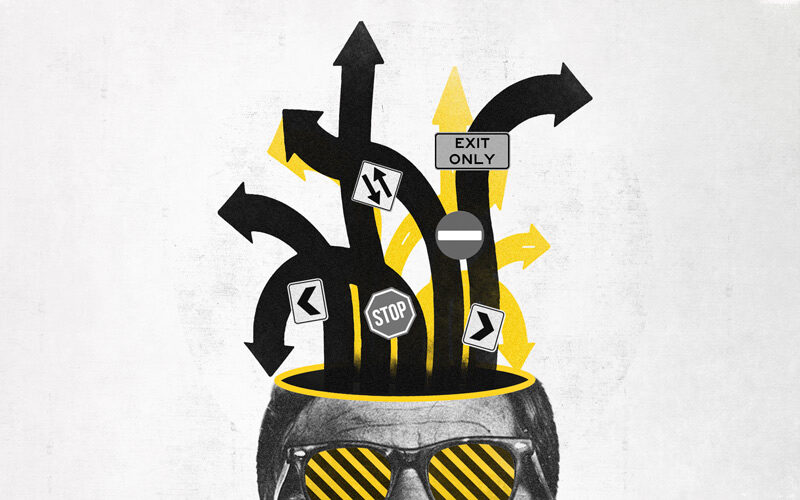The unicorn club has arguably become the most elite club in the world. It has just one simple entry requirement: be valued at $1 billion or more when you go public.
The media doesn’t help. Search the AFR for the word ‘unicorn’ and you come up with 200 results (and none of them are about a flying horse).
In 2013, when Cowboy Ventures founder Aileen Lee coined the term, there had been 39 unicorn exits in the past decade. They were emerging at a rate of 4 per year, and they were all US software companies.
Now, over 1,000 companies have hit billion-dollar valuations worldwide. Sounds like a lot. But when you compare it to the 344,000 businesses that were started in 2020 in Australia alone, your percentage chance of earning that unicorn horn starts to look kind of vanishingly small.
Why do we want unicorn status so badly?
The obvious answer is to obtain the kind of riches only royalty has historically had access to. But given the odds, startup founders with stars in their eyes could just play the lottery and save themselves the hard work.
Achieving unicorn status is about more than cold hard cash.
In startup culture, there’s an increasing pressure to keep up with the Joneses (or maybe ‘Jobses’ is more apt). In some circles, you’re not really anyone until you’ve founded a startup. If you’ve founded a startup, how cool are your offices? How big is your team? Just how mock-humble is your daily office attire? What car do you drive, and how electric is it?
There’s an ego at play that you just don’t see in mom-and-pop shops and SMEs. And a sense of tenacious competition that’s cultivated in part by the scarcity of funding and the difficulty of meeting and connecting with the right investors.
The dark side of the wealth divide
The uncomfortable truth is that a vast amount of societal ills stem from relentless greed and drive for growth. Underpaid workers, unnecessary mass production (often of unrecyclable materials), models and marketing campaigns causing mental health epidemics, the devouring of small local businesses, hostile and unhealthy corporate environments, the terrifying power held by a tiny handful of tech giants. The list goes on.
Even the founders who begin with unwavering ethics (“we’ll pay every staff member more than minimum wage”, “we’ll offset our carbon emissions”, “we’ll run X charity program”) get sucked into the growth-or-die vortex.
The pressure of keeping promises
Pleasing and appeasing shareholders has become dogmatic. In return for the investment capital injections they pitched, pleaded, and promised the world for, founders are under crushing pressure to deliver returns. Early-stage investors are like the capitalist gods who must not be angered.
The really scary thing about unicorn contenders is that they don’t even need to be profitable. Profit margins can be slashed to near zero on the backs of investors’ wallets.
This is devastating for independent, bootstrapping businesses, for the supposed unicorns themselves who find themselves cash poor and radically overvalued (by as much as 100%), and to the economy at large when the unicorn bubble bursts. The pursuit of success is inverted. It’s not a race to the top anymore. It’s a race to the bottom.
Are billionaires becoming self-aware?
There’s a reason for the mock-humble fashion and the Honda Accords and the $48 Casio watches. Business billionaires know that flaunting wealth is not a good look.
The very fact they’re responding in this way shows the sentiment is real and spreading. Younger generations are increasingly looking upon disproportionate wealth with distaste. They don’t care if you’re successful. They don’t want to see you becoming independently rich. They care what good you’re doing for the world.
Canva founders are leading a trailblazing example with the acknowledgement of their huge responsibility, and their role as ‘custodians’ of wealth rather than owners of it. The Canva Foundation is currently focusing on poverty in Southern Africa and biodiversity and climate change programs.
Money means little without a planet to spend it on
COVID-19 and the climate crisis have only catalysed this paradigm shift. Humanity has reached a point of no return. Industry has devastated our natural world. Founders have a gigantic responsibility like no others have faced before them. All must seriously consider which side of history they want to be on.
If unicorn-ing is so bad, what’s the alternative?
9/10 startups will fail.
For many of them, the cause of death will be running out of funds after blindly and relentlessly pursuing the growth mantra.
There’s something much better than a dead unicorn: significant and sustainable. A significant and sustainable company is a better goal for founders. It’s better and more stable for our investors. It’s better for consumers, it’s better for the market. It’s just better.
This is key: shooting for significant and sustainable does not rule out the possibility of seeing super high growth and million (or even billion) dollar valuations. It’s just that growth at all costs isn’t the right way to go about it.
The next generation of founders should make positive long term impacts – job creation, tax generation, improving their industries. Because we know that’s the way business is going, and those without these attributes will very quickly get left behind.
Building a significant and sustainable business is not easy. It requires maturity and brutal honesty. It asks you to hold a mirror to your business. If you believe you can implement honest appraisal, identification of values, and resolution of flaws, you’re already making great strides towards success.











